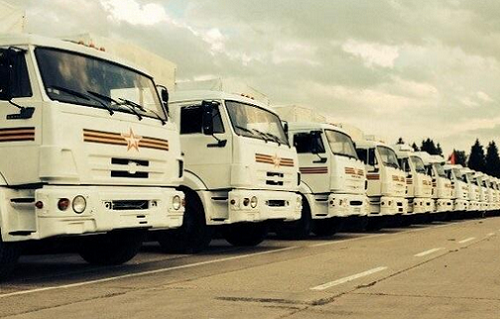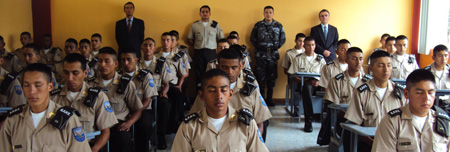The Russian military was ready to invade Ukraine in April but stopped short of doing so, Pavel Felgenhauer, a leading independent military analyst in Moscow, says. Now it is not and probably won’t be until the middle of July at the earliest “regardless of what happens in Ukraine.
Felgenhauer’s comments came in the course of a wide-ranging interview on Ekho Moskvy in the wake of Vladimir Putin’s decision to ask the Russian parliament to rescind its authorization for the use of force in Ukraine about where Moscow is now and what it is likely to do next.
Felgenhauer began by suggesting that what is taking place in Ukraine and Russia resembles strategically “a matryoshka doll,” in which various layers are involved. “There are the separatists” who “in a military sense” are weaker than Kyiv and have lost to the Kyiv regime.” If no one else were involved, Ukraine would “liquidate them” in a month or two.
“But the Ukrainian forces are weaker than the Russian forces,” the independent Russian military analyst continues, and “Russia is weaker than the united West.” As a result, what is taking place is “a very complicated game” within and among these various levels.
Russia’s “strategic goal” is “now perfectly obvious: to transform what is taking place in Donetsk and Luhansk into a frozen conflict like Abkhazia or Transdniestria” by establishing a ceasefire, involving peacekeepers and observers, and thus “stabilizing the situation as it now exists.”
Such an outcome would give Moscow enormous advantages because it would leave it with “a serious lever” on Kyiv for a long time to come.
But getting to that point is “very complicated,” Felgenhauer continued, not least of all because Kyiv and the West understand what Putin is trying to do and why. Kyiv doesn’t want to provoke Moscow, but it doesn’t want Moscow to succeed either. And the West is in much the same position.
Putin’s request that the Russian parliament rescind its authorization for the use of force is part and parcel of this game, he said. Kyiv wanted this as a confidence building measure, even though everyone knows that the Federation Council’s approval is unnecessary – Putin didn’t get it for Georgia in August 2008 – or can be secured instantly whenever he asks for it.
But at the same time, the analyst said, “right now Russia is not prepared for any serious actions in Ukraine. We were ready in April, and at the end of April in essence moved forward. Then we stopped.” Felgenhauer added that he did “not know why” the order to invade did not come at that time.
When it didn’t, “demobilization took place.” Draftees were sent home, tactical battalions were shifted. “Now several of them have returned but,” he said he “thinks” that “before the middle of July or the end of the world soccer championship final Putin plans to attend there will not be any sharp actions” regardless of what takes place on the ground in Ukraine.
“The second half of July and August are the times of some risk, depending of course on how the situation in Ukraine will develop,” Felgenhauer said, although he added that “in Moscow, of course, they would like to get through this peacefully” by “freezing the situation and retaining the leverage it would give the Kremlin on Kyiv.
Securing the necessary agreements, however, may not happen because the Ukrainian military is gaining in strength. It is integrating its various elements, identifying and appointing better commanders, and elaborating better strategy and tactics, he suggested. If Russia weren’t continuing to supply the secessionists, Kyiv would win.
But Moscow “will not agree to closing” the border or stopping the flow of arms and personnel from the Russian side, Felgenhauer said. To do so would be to give up on its frozen conflict strategy, one that has worked well for some time elsewhere. This time may be different, however.
The Ukrainian side, the Moscow analyst continued, also views a ceasefire as important “because [Kyiv and its forces] are becoming stronger.” Time is thus on Ukraine’s side, although the time it needs to “put its house in order” may be longer than it has, especially given that Moscow shows every sign of continuing to interfere.





